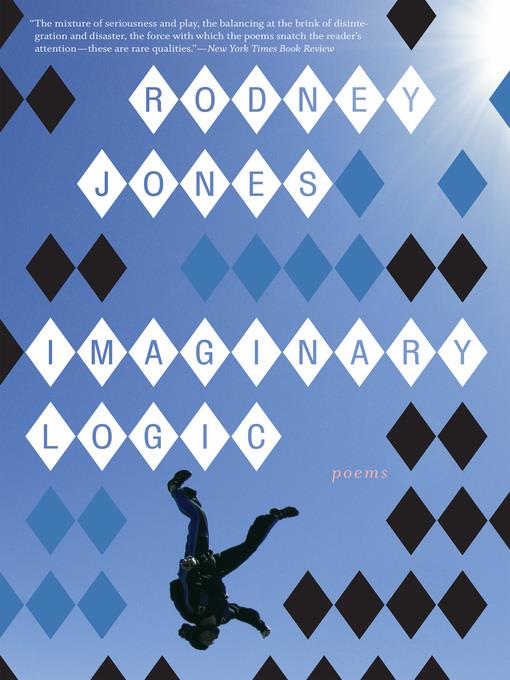
Imaginary Logic
کتاب های مرتبط
- اطلاعات
- نقد و بررسی
- دیدگاه کاربران
نقد و بررسی

July 25, 2011
The gritty, capacious verse in this ninth book from Jones (Salvation Blues) pursues, and secures, the virtues of realist fiction: credible characters whose lives change as we read about them, in well-defined milieus (the Alabama where Jones grew up, most often, but also the Midwest, where he lives now). By far the longest poem, "The Previous Tenants," follows his almost unwilling discoveries about an unhappy couple's lives: "We know the four flower beds. We do not know their love./ We know all that went unrepaired and fell apart...." Jones takes family stories for long, rough rides, "seeing how, on a childhood rabbit-hunting trip,/ Uncle Manson shot Uncle Cecil in the back," and he gets a thoughtful political poem out of service on a local sewer board. Yet Jones's strongest new workâmostly in the first part of the volumeâstands apart from the stories it contains, enfolding arguments and inventing voices for characters as it hunts the same durable themes. Middle age, masculinity, competition, religion, football, and the art of poetry itself spin together into powerful ironies in some of the best poems Jones has created so far: "I had a dream," one begins, "of harnessing and exacting irrevocable power over others... in the cleat-pocked, dried dirt of a practice field."

August 1, 2011
Jones (Salvation Blues) is often cited as a Southern poet, a designation that overshadows his greatest asset: a sense of humor. Most of the poems here are narrative, though Jones questions the style in "On Fiction": "a few people, / professors mainly, / claim that the story has died." The speaker aptly responds by saying "Given language, the story tells itself." Jones's speakers also poke fun at the revered, as in "The Competition of Prayers"; when no one approaches the altar to pray, the pastor "would signal the pianist to play more/ gravely." Despite their irreverence, these poems often have moments of compassion, as when one speaker, after enduring a fire-and-brimstone lecture, reflects: "Probably they just got carried away./ They meant to talk politics./ The end of time was just a pretext." VERDICT Jones shows great flexibility of style, from the lyrical (recalling Robert Wrigley's work) to "ultra-talk" braided poems (a la David Kirby's The House on Boulevard St.) to charming surprises--"That each zebra masks an inadequate horse"--and he deftly places the sacred (Gandhi) next to the pop (Van Morrison). Good for a wide range of poetry readers.--Stephen Morrow, Columbus, OH
Copyright 2011 Library Journal, LLC Used with permission.

























دیدگاه کاربران